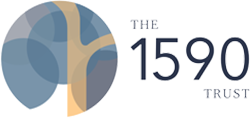A Level Computing
The course looks at the technical aspects of how a computer works, including hardware, software and networking. A substantial part of the course involves developing practical programming skills.
This qualification leads to careers in business, gaming, graphic design, computer programming and software development.
“I have been able to learn about the intricacies of a computer and feel much more confident when explaining to others why computers do the things they do – and why they don’t always do what you expect them to do!”
Computing – OCR
What is Computing?
Computer Science is a practical subject where students can apply the academic principles learned in the classroom to real-world systems. It’s an intensely creative subject that combines invention and excitement, and can look at the natural world through a digital prism.
Why study it?
To learn about how problems are broken down and solved effectively and efficiently. To learn programming skills in a range of programming languages and learn how to adopt a structured approach to programming. To understand what makes computers tick! – what’s inside, why and how everything works together. Appreciate some of the ethical and moral issues surrounding the widespread use of computers in society.
Course Structure and Your Future
Year 12 & 13
Throughout the course, many different aspects of computing are explored which will develop your understanding of the subject. The main areas addressed in the course are stated below:
Computer Systems, Algorithms and Problem solving and Programming Project
What next?
Studying A Level Computer Science can be extremely valuable if you wish to pursue a career in the following;
Computer Programmer, Database administrator, Games developer, Information systems manage, Network engineer, Systems analyst, Systems developer or Data Scientist

